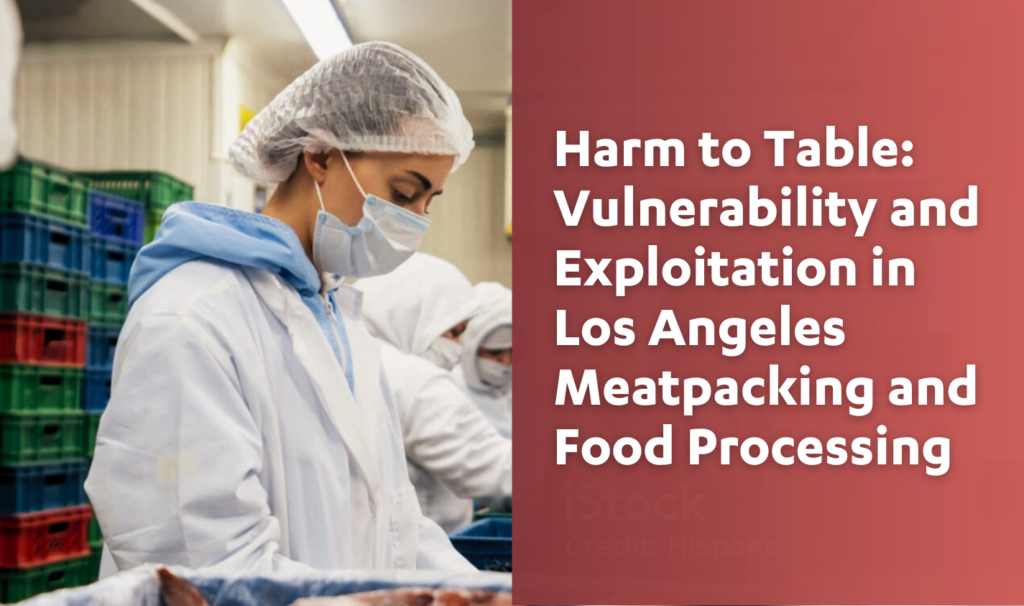
Throughout the 20th century, the combination of enormous consumer demand and an abundant supply of low-wage and immigrant workers made Los Angeles County a regional hotspot and powerhouse for meatpacking and food processing.
In the past several decades, corporate consolidations and deregulation in the industry has significantly transformed the national and local landscape. On a national scale, only a few firms dominate and control beef, pork, and chicken processing, to such an extent that they are able to maximize corporate profits while exerting greater pressures on all levels of the supply chain, from raising animals to stocking grocery stores. This unchecked corporate power has led to worsening outcomes for farmers and volatile prices and heightened food safety risks for consumers, as well as depressed wages and deteriorating working conditions for workers.
In Los Angeles County, and the industrial city of Vernon in particular, unionized processing facilities have either shut down operations or left town, relocating to the South and Midwest. In their wake, small and midsize facilities have carried on the work of processing animal proteins for Los Angeles County, largely employing the same workforce, albeit now via an opaque system of temporary staffing agencies.
Harm to Table: Vulnerability and Exploitation in Los Angeles County Meatpacking and Food Processing examines the social and economic harms associated with the systematic evisceration of a once robust local industry that formerly provided dignified long-term employment, but has now been replaced with an ad hoc network of precarious and contingent work.
Among other findings, the report notes:
- Workers in both meatpacking and poultry processing regularly experience numerous forms of wage theft, including late or withheld paychecks, meal and rest break violations, off-the-clock work, unreimbursed personal expenses, and minimum wage violations.
- Many workers do not receive sufficient documentation of their hours or wages, a violation of California state law, and workers regularly receive employment contracts in languages they do not understand.
- Staffing agencies help food processing companies navigate labor demand uncertainty by providing a flexible quantity of workers, yet they simultaneously sustain a class of long-term employees in “perma-temp” labor arrangements with little opportunity for career advancement.
- Workers reported a pervasive culture of verbal abuse from supervisors, fomenting a fear of retaliation that undermines worker power and prevents workers from speaking up against clear violations.
- Both meatpacking and poultry processing workers contend with dangerous working conditions, especially relating to their ability to meet unrealistic production quotas that require impossible or unsafe operating speeds.
- Substandard working conditions are directly linked to substandard food safety outcomes.
Authors recommend:
- Establishing a worker center in Vernon.
- Prohibiting piece-rate compensation in food processing sector.
- Expanding language access for employment contracts in California labor code.
- Creating High Road Training Partnerships (HRTPs) in meatpacking and food processing to bolster local industry.
- Strengthening worker protection standards for public procurement in Los Angeles County.
